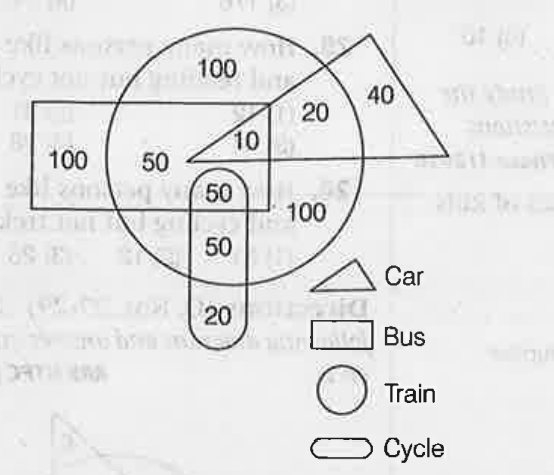Our awareness of time has reached such a pitch of intensity that we suffer acutely whenever our travels take us into some corner of the world where people are not interested in minutes and seconds. The unpunctuality of the orient, for example is appalling to those who come freshly from a land of fixed meal-times and regular train services, For a modern American or Englishman, waiting is a psychological torture. An Indian accepts the blank hours with resignation, even with satisfaction. He has not lost the fine art of doing nothing. Our notion of time as a collection of minutes, each of which must be filled with some business or amusement, is wholly alien to the Greek. For the man who lives in a pre-industrial world, time moves at a slow and easy pace, he does not care about each minute, for the good reason that he has not been made conscious of the existence of minutes.
A person who belongs to pre-industrial world
knows the utility of time.
knows how to derive happiness by making use of time carefully.
does not care about each minute.
cares much for every minute.
The correct Answer is:C
does not care about each minute
Similar Questions
Knowledge Check
Our awareness of time has reached such a pitch of intensity that we suffer acutely whenever our travels take us into some corner of the world where people are not interested in minutes and seconds. The unpunctuality of the orient, for example is appalling to those who come freshly from a land of fixed meal-times and regular train services, For a modern American or Englishman, waiting is a psychological torture. An Indian accepts the blank hours with resignation, even with satisfaction. He has not lost the fine art of doing nothing. Our notion of time as a collection of minutes, each of which must be filled with some business or amusement, is wholly alien to the Greek. For the man who lives in a pre-industrial world, time moves at a slow and easy pace, he does not care about each minute, for the good reason that he has not been made conscious of the existence of minutes.
The orientals are alien toAthe business of amusement.Bthe notion of time as a collection of minutes.CindustrializationDthe fine art of doing nothing.Our awareness of time has reached such a pitch of intensity that we suffer acutely whenever our travels take us into some corner of the world where people are not interested in minutes and seconds. The unpunctuality of the orient, for example is appalling to those who come freshly from a land of fixed meal-times and regular train services, For a modern American or Englishman, waiting is a psychological torture. An Indian accepts the blank hours with resignation, even with satisfaction. He has not lost the fine art of doing nothing. Our notion of time as a collection of minutes, each of which must be filled with some business or amusement, is wholly alien to the Greek. For the man who lives in a pre-industrial world, time moves at a slow and easy pace, he does not care about each minute, for the good reason that he has not been made conscious of the existence of minutes.
The orient in the passage refers toAChina and Japan.BJapan and England.CEngland and America.DAmerica alone.Our awareness of time has reached such a pitch of intensity that we suffer acutely whenever our travels take us into some corner of the world where people are not interested in minutes and seconds. The unpunctuality of the orient, for example is appalling to those who come freshly from a land of fixed meal-times and regular train services, For a modern American or Englishman, waiting is a psychological torture. An Indian accepts the blank hours with resignation, even with satisfaction. He has not lost the fine art of doing nothing. Our notion of time as a collection of minutes, each of which must be filled with some business or amusement, is wholly alien to the Greek. For the man who lives in a pre-industrial world, time moves at a slow and easy pace, he does not care about each minute, for the good reason that he has not been made conscious of the existence of minutes.
According to the authorAthe orientals are very punctual.Bthe Americans or the Englishmen are punctual.Cthe Greek and the orientals are very punctual.Dthe Indians are very punctual.
From where do we get our food?Give examples.
View SolutionWhen we chew a piece of bread for some time, we feel sweet taste in our mouth. Give reason.
View SolutionIf we travel with the spped of light , it will take 1 second to reach the moon.
View SolutionFind out the error part of the following sentences :It had been our custom (1)/ from immemorial time to be (2)/hospitable to those who come to our doors. (3)/ No error (4)
View SolutionOur awareness of time has reached such a pitch of intensity that we suffer acutely whenever our travels take us into some corner of the world where people are not interested in minutes and seconds. The unpunctuality of the orient, for example is appalling to those who come freshly from a land of fixed meal-times and regular train services, For a modern American or Englishman, waiting is a psychological torture. An Indian accepts the blank hours with resignation, even with satisfaction. He has not lost the fine art of doing nothing. Our notion of time as a collection of minutes, each of which must be filled with some business or amusement, is wholly alien to the Greek. For the man who lives in a pre-industrial world, time moves at a slow and easy pace, he does not care about each minute, for the good reason that he has not been made conscious of the existence of minutes.
What is the main theme of the passage ?
View Solution

